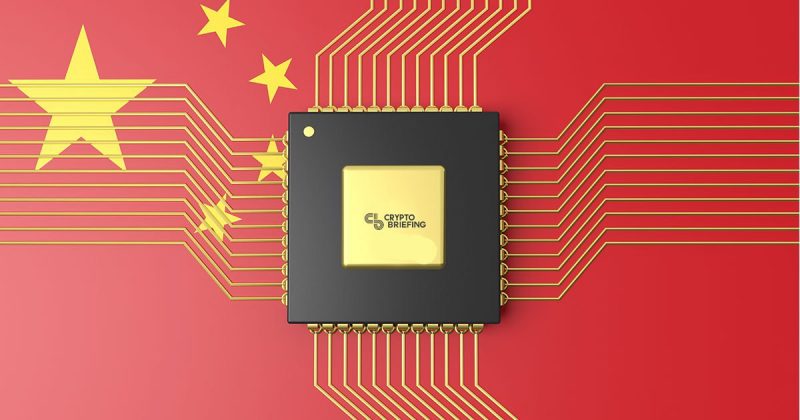
With the Dollar’s Days Numbered, Is There Room for a Digital Yuan?
Unprecedented monetary policy has placed the dollar's dominance in question. At the same time, China is pulling ahead with its digital yuan initiative.
Ever since its public announcement in June 2019, China’s digital yuan initiative has been closely tracked by the cryptocurrency industry. And as the first phase of testing begins in the East, the West may need to accelerate similar initiatives if it hopes to keep abreast of innovation.
Digital Yuan Pilot Begins
China rolled out the first stage of testing for its sovereign digital currency last week, with partners such as McDonald’s, Starbucks, and Subway reported to be a part of the pilot, per CNBC.
A spokesperson for the Chinese central bank told CCTV that this is closed testing and does not represent the issuance of the official currency, called Digital Currency Electronic Payment (DCEP). The trial run, which ran in four cities, will serve as the basis for improving the end-product that could go live later this year.
Last month, images leaked of what such an application would look like. It is not dissimilar from the interface of other Chinese payment solutions such as Alipay and WeChat. Like both applications, the Chinese DCEP application will use touch-and-pay NFC technology as well as QR codes.
Local reports claim that certain government employees will be paid their monthly salary using the new digital currency. Involving everyday users in the testing process could prove to be a useful experiment.
Unlike Bitcoin, China’s digital currency will not run on a blockchain, nor will it bear a semblance of decentralization. Matthew Graham, CEO of Sino Global Capital, emphasized that China’s digital currency shouldn’t be considered “crypto.”
The proposed digital alternative would be entirely controlled by China’s central bank, the People’s Bank of China (PBOC). Commercial banks will operate as digital wallet providers for the currency, and PBOC will have access to all transaction history and identifiers.
The goal of digitizing the country’s medium of exchange hinges on the cost-efficiency and ease of use that would accompany such an innovation.
Time for the West to Rise and Shine
While the prime focus may be for China to improve the efficiency of payments, its agenda of ending the dollar’s hegemony still holds.
One of several DCEP purposes, but yes https://t.co/eOCcrtoVE4
— Matthew Graham (@mattyryze) April 27, 2020
Providing a viable alternative to settling trade in dollars will help other countries operate as they see fit, rather than bending to United States sanctions. From an economic perspective, the value of the dollar has also come under question especially since the world’s largest economy hurdles towards recession.
According to a poll from Reuters earlier this month, the majority of financial analysts believe that USD’s days are numbered.
This same poll indicated that a majority of analysts believe “developed market currencies were likely to perform better against the dollar over the next three months.” Developed market currencies would include the euro and the British pound, for instance.
One must also consider the geopolitical power of the U.S. dollar’s dominance.
Due to the close connection to critical financial infrastructure, the American government can quite easily intervene in international trade. Though sanctions on North Korea and Iran are well-known, such blockades have even been raised for American companies.
On May 11, the Treasury Department and a Kansas-based firm settled allegations related to the sale of “animal feed additives” to Cuba. Biomin American agreed to pay $258,000 for failing to “have an OFAC compliance program in place at the time and incorrectly deemed the structure would be compliant with U.S. sanctions laws,” reported The Wall Street Journal.
A sovereign digital currency provides a functional alternative to the dollar settlement system and blunts the impact of any sanctions or threats of exclusion both at a country and company level, wrote China Daily.
The Dollar Plays Catch Up
Christopher Giancarlo, ex-chairman of the CFTC, is leading the charge to bring the United States up to speed with China’s development in this realm.
“China’s infrastructure will operate using a digital yuan as part of its integration, bypassing the rest of the world’s traditional banking system,” he told Forbes in an interview. He added:
“I don’t fault the Chinese for pursuing this. But against that kind of innovation, how can we say there is no need to also digitize the dollar? Should not the dollar also play a role in digitized systems?”
The digital dollar initiative will keep power within the hands of the federal government, rather than a private entity.
Libra undoubtedly played a role in instigating China’s central bank to consider radical digitization, as the nation announced its intent to launch a sovereign digital currency a few months after Facebook’s formal announcement of Libra.
Perhaps China could inspire the United States to seriously consider a digital dollar.
As China inches closer to a full rollout of its state-of-the-art financial infrastructure, Western countries should do more than just experiment with digital currencies, as CBDCs potentially hold the key to efficient trade settlement in the digital age.
China’s digital currency may not overpower the dollar as the favored means of settlement, but it is representative of the United States’ failure to assert that it is still the global leader of innovation.
